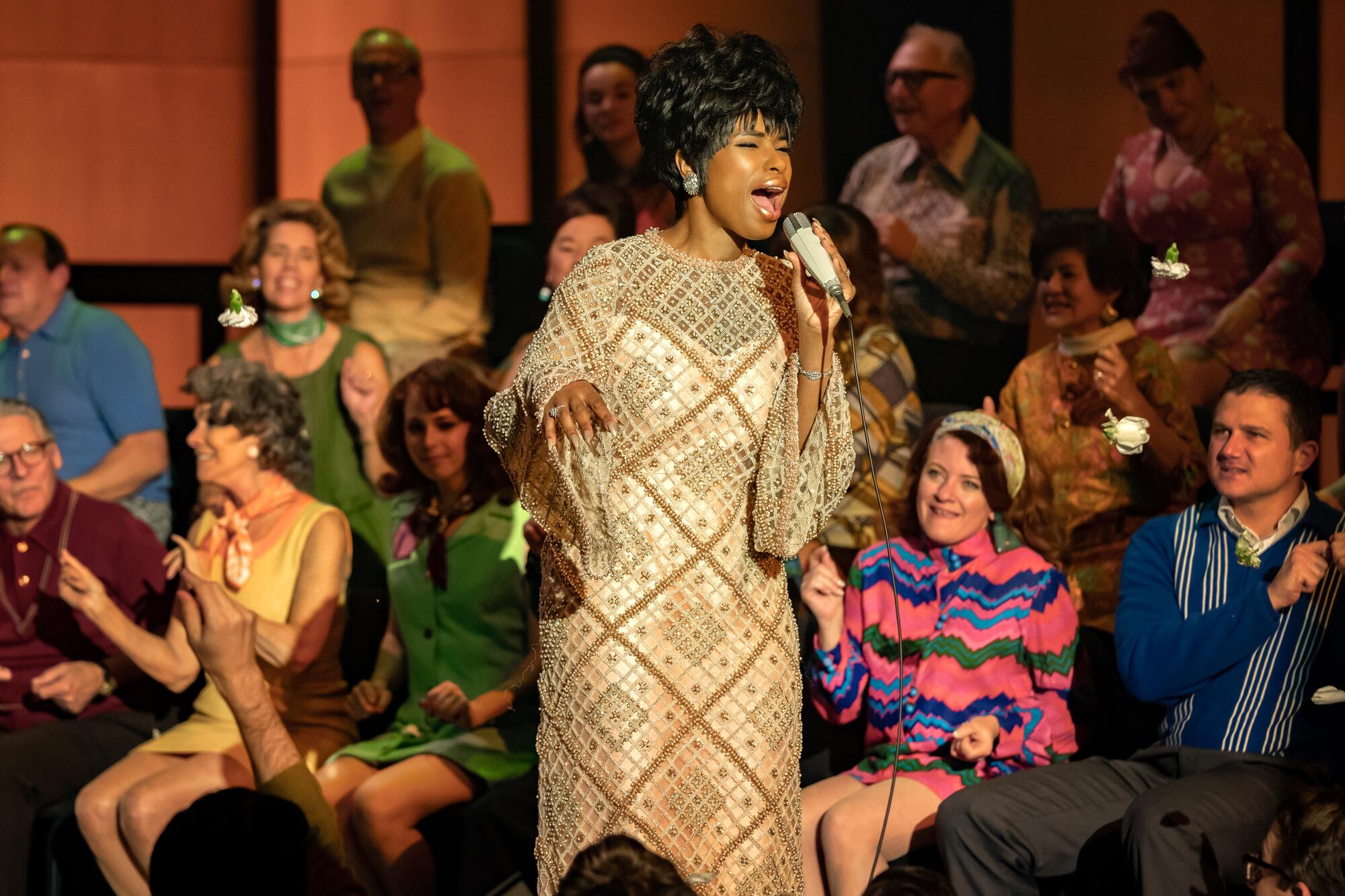
When veteran Broadway costume designer Clint Ramos was tapped to work on the Aretha Franklin biopic âRespect,â he soon found himself studying the late singerâs roles as both a cultural and sartorial icon.
âShe was a fashion icon but not in the traditional sense,â Ramos says in a call from his Manhattan home. âThe woman never followed any trends. As she moved through the narrative of her life, it seems evident her clothing simply followed her life. She wasnât a fashion plate or a mannequin or anything like that â she was telegraphing the way she felt through clothing the same way she did with her music. She wasnât a loyalist to any house or designer; she had clothes from Detroit, clothes literally off-the-rack and custom-made things.
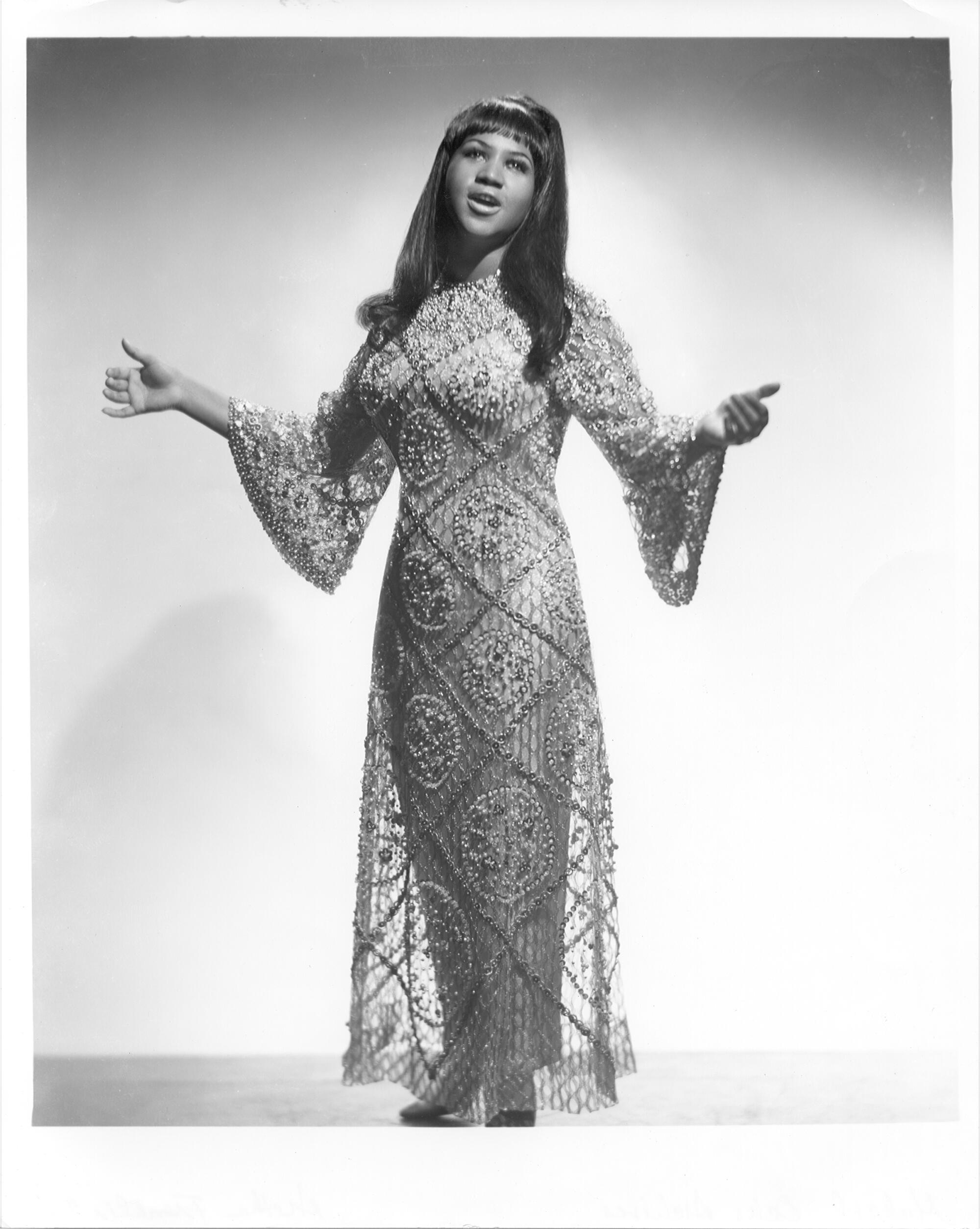
âMaybe more than anything, Arethaâs iconic gift to fashion is her attitude: âAnd I donât give a damn.â [Laughs.] She wore what she wanted, how she wanted, when she wanted. Take it or leave it. And thatâs Aretha.â
Youâve mentioned how Aretha dressed for emotion and protection versus style and trend. Is this something you knew prior to the project?
I donât know for a fact itâs true, of course. But it seems to me, going through all the research over all the decades, there was a subliminal ethos in the way she dressed. Firstly, in the photos where sheâs incredibly posed, she looked so effortful; there was a lot of psychological architecture going on holding her in. But there were also a lot of photographs with another essence that isnât perfect â a hair askew or her makeup kind of smeared. Her humanity always came through.
The thing I loved about Aretha is she didnât care who liked or didnât like what she wore. She dressed for herself. But she did have some real clunkers; remember the ballerina tutu?
Yes! [Laughs.] Sometimes the scale would really be off. But it makes you look at how weâre trained to view fashion. How we define aesthetics for women. This was a woman, after all, who told Valentino and Calvin Klein to make bigger-sized clothing, and this was in the â70s, when size diversity was unacceptable. She was a maverick in that way.
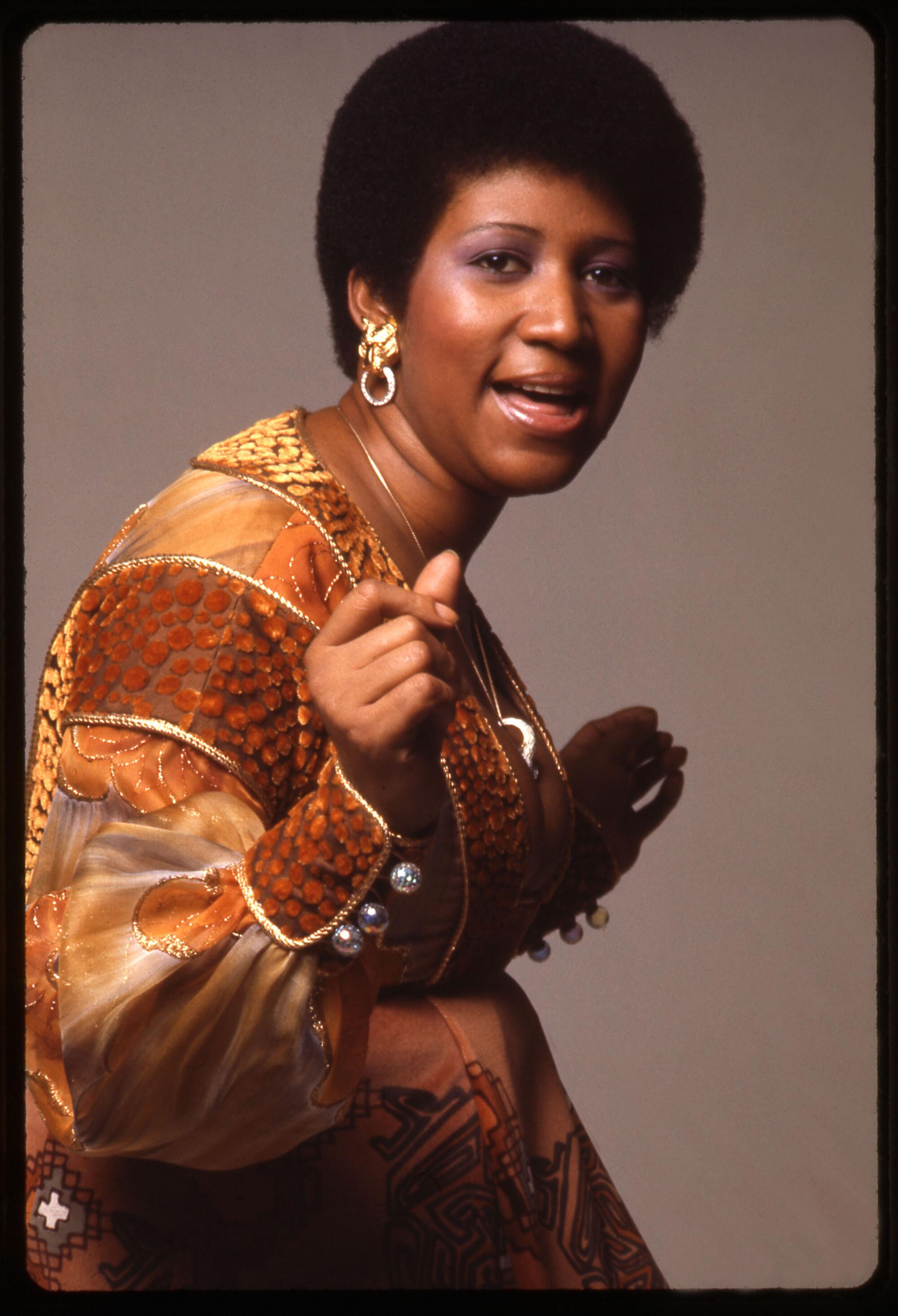
Jennifer Hudson and Aretha are very different women in terms of size and shape. How did this affect your design process?
It was about scale. Also, a lot of the early conversations Jennifer and I had were about how Aretha walked. She had a very gingered walk, something I think was about not taking up too much space. We kept talking about that a lot. So, for me, when I was fitting Jennifer, I was really conscious of the specific moments when she was forced to take up a small space versus when she ultimately decided to take up a big space.
Can you give an example?
A lot of her early clothing in the â50s was very constricted â prim and proper. The Columbia years, when her father was peddling her and wanted her to be the Black Judy Garland, her dresses were restrictive, really tight. And as her music and her life shifted, she dressed loose and bigger and just took up more space and volume, with big furs and caftans and all that.
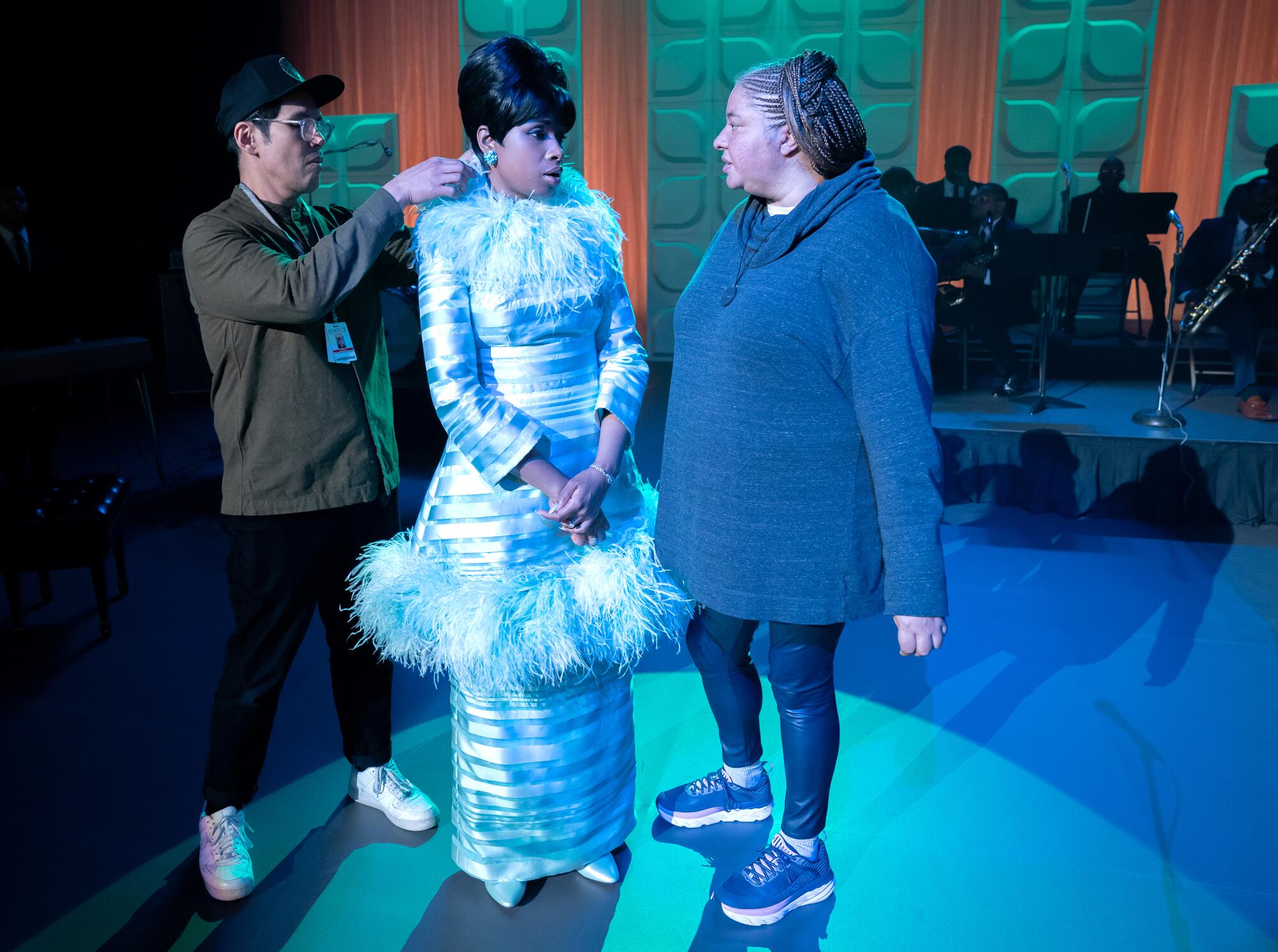
Would you agree a good percentage of Aretha fans were not aware she grew up in an upper-middle-class home, quite privileged? She was not a child of poverty.
Yes. I find it fascinating how weâre geared to view this. When you design African American divas, the media almost wants a template of a rags-to-riches thing. Ray. Tina. But Arethaâs family werenât sharecroppers. The important thing is, regardless of her economic means, the racial and gender traumas inflicted upon her still happened. Itâs so profound; but it seems uniquely profound in an affluent world.
Letâs talk about some of the filmâs more iconic pieces. Whatâs the story of the beautiful beaded gold dress?
I wanted a dress Aretha loved wearing. I saw footage of her Amsterdam concert, though I wasnât able to find its original color and what it was made of. Nobody knows where the original dress is. A vintage dealer contacted me via Instagram saying, âI have an identical dress [to what] Aretha wore at her Amsterdam concert, can you use it?â It turned out to be an off-the-rack dress thatâs metallic gold and made out of ribbons.
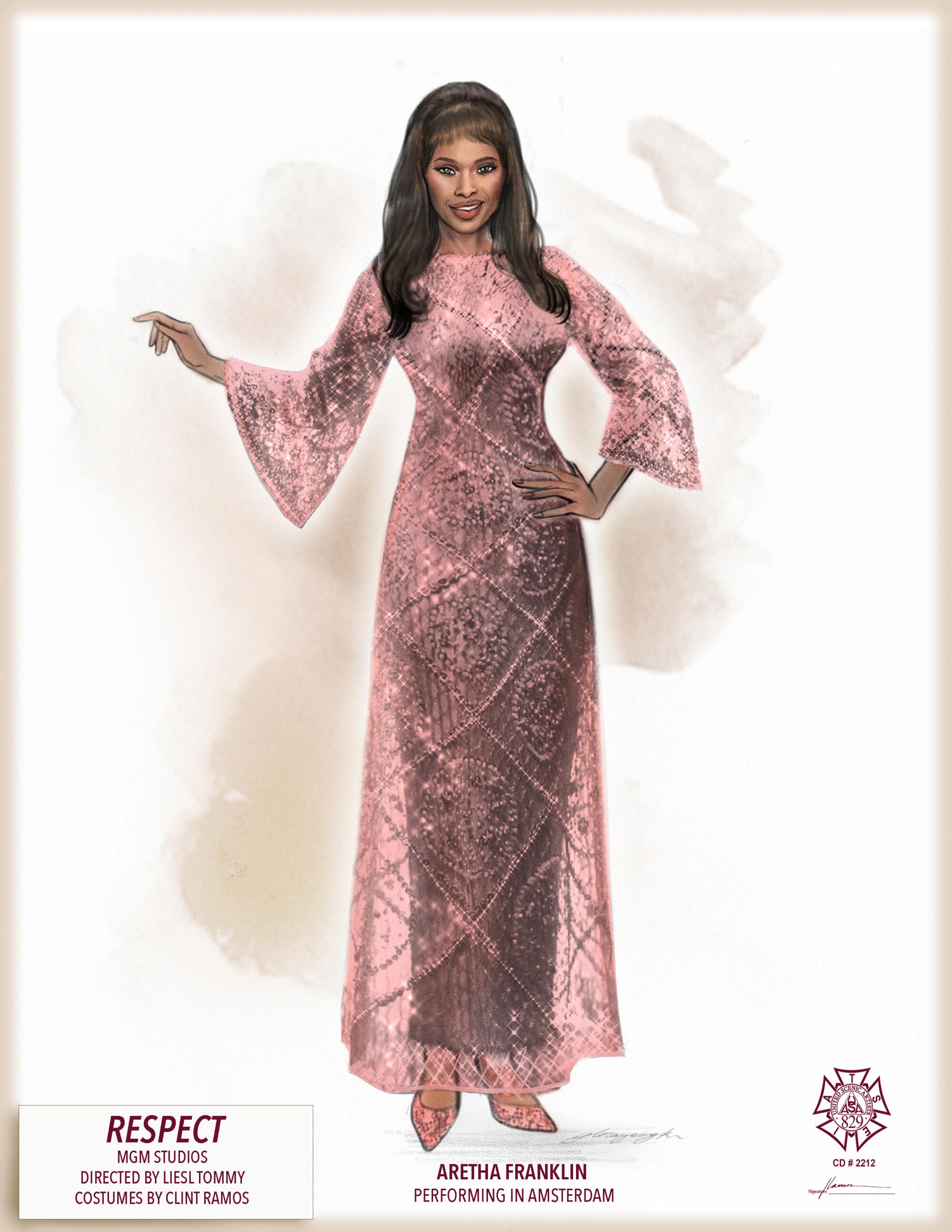
For our film, I wanted it more delicate, so I did it with pearls and a champagne silk and strips of ribbons. It was very labor-intensive, requiring a lot of hands. But, thank God, nothing was off and the details were perfect because they blew it up mammoth-size for the [filmâs] massive Sunset Boulevard billboard. When I came to L.A. for the premiere, I had to drive by to see it.
I noticed on the famous green-striped feathered outfit Aretha wore with Martin Luther King Jr., and also her âAmazing Graceâ paisley gown, you shifted the hot green color to aqua. Why?
I always consider how we adjust things for the modern eye. And we wanted to help the scene. And you had to be careful because it can almost be cartoonish, a Dr. Seuss dress. For me, that lime green color loudly squeals â60s â I just wanted to give them both a little bit more elegance and modernity.
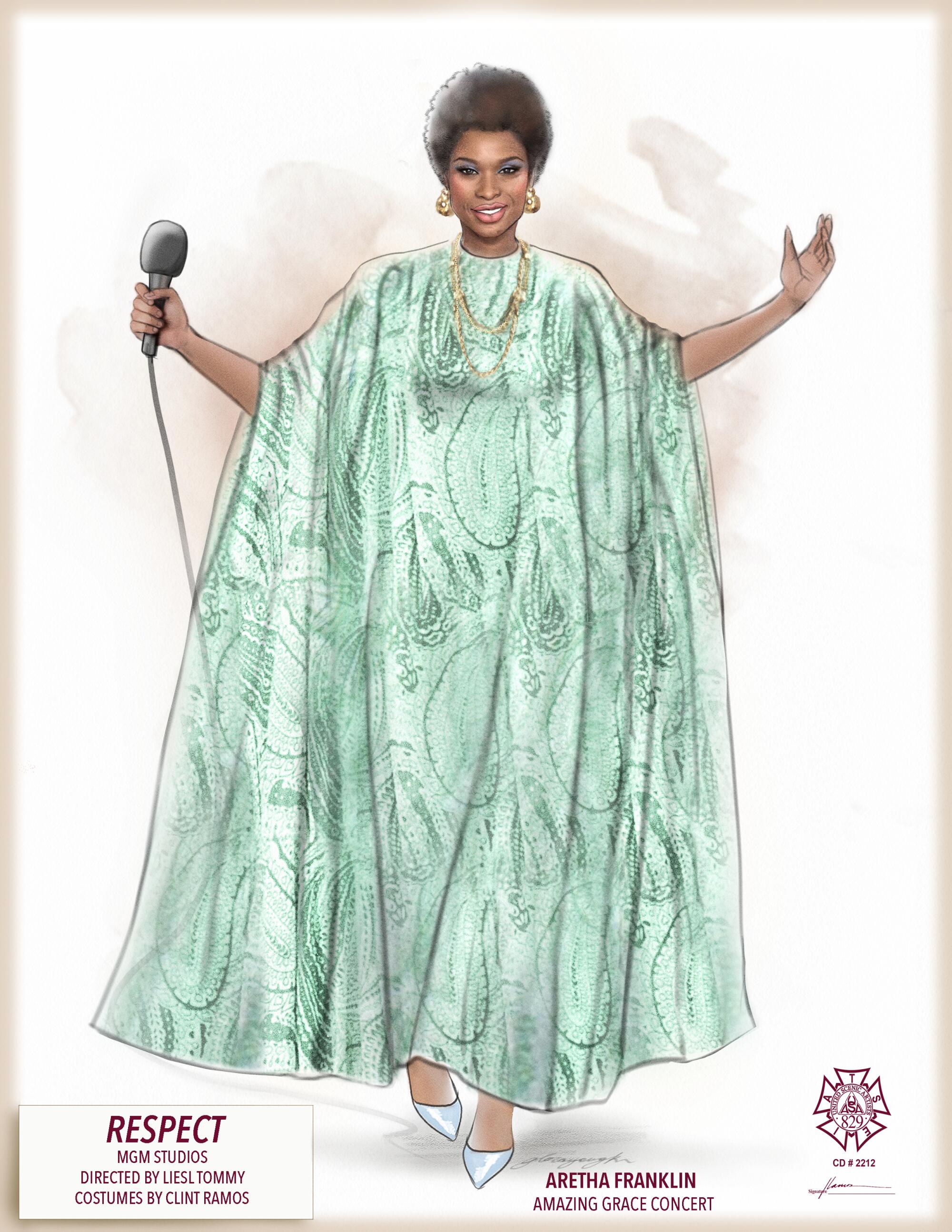
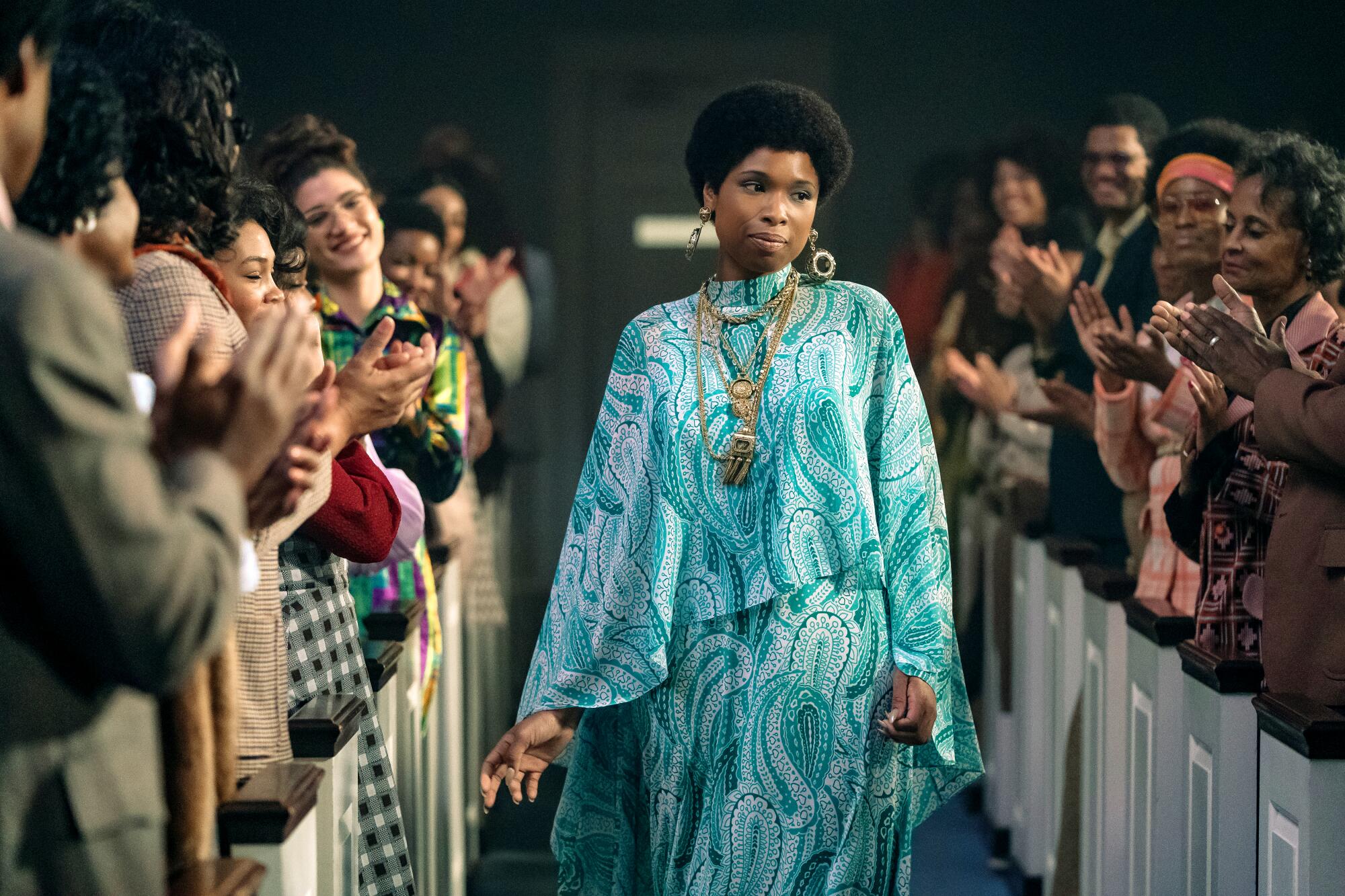
The furs were amazing. Were they vintage, faux, did you have them made?
They were a combination of vintage and faux; I didnât have any new furs made, as I didnât want to cross that line. I thought it important to understand what her motivation was in wearing all her full-length, massive furs: She was trying to protect herself. It was about an armor. The way she related to her furs, I believe, was directly proportional to her fear. I mean, who goes onstage with a full-length fur like she did at the Kennedy Center Honors? There must be some quite big force inside you saying, âHey, guys, I canât trust these people.â Also, the furs were Aretha wrapping herself up in this big success.
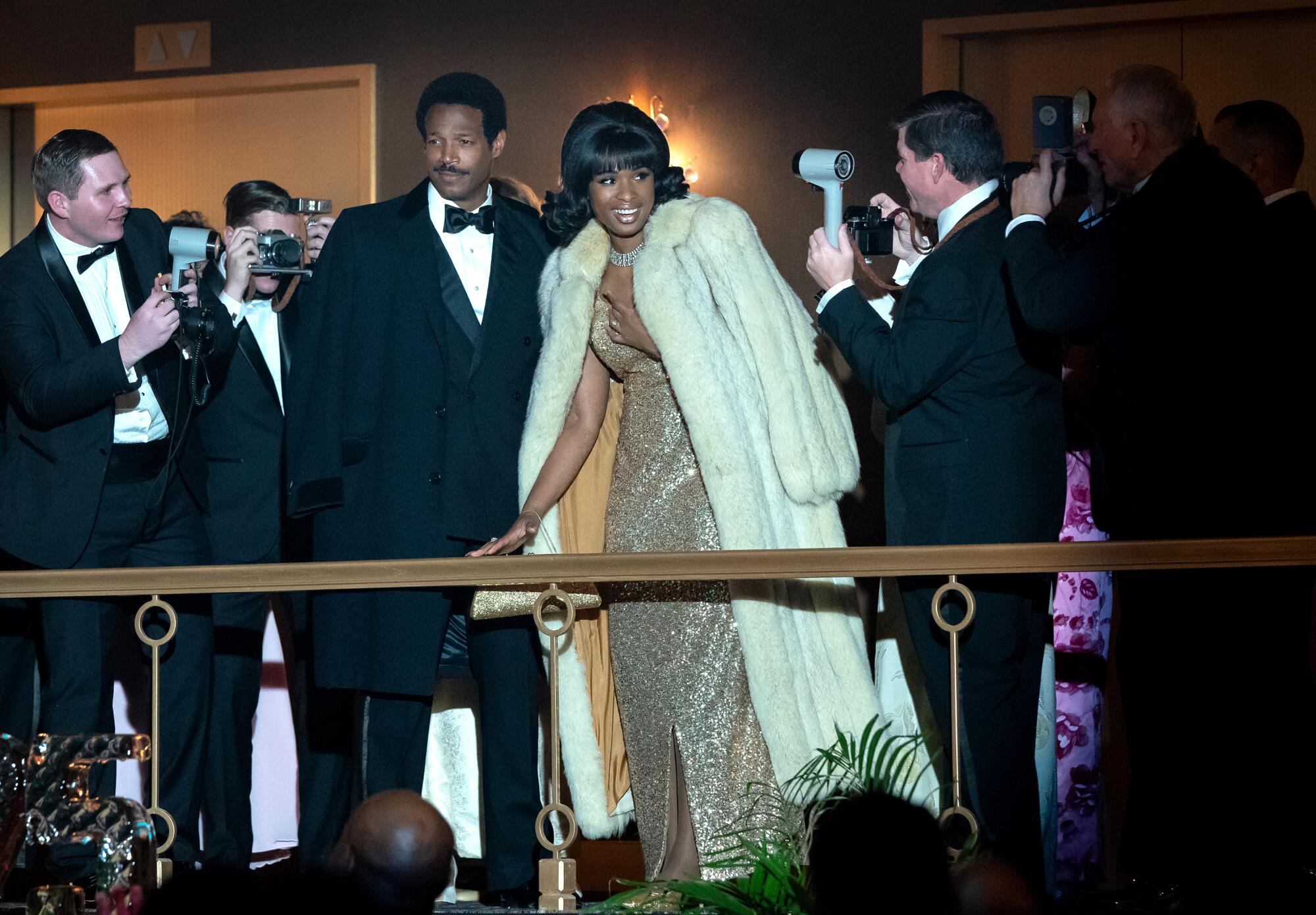
You mentioned your favorite piece is the slip Aretha wears in the scene where sheâs battling her alcohol demons. That one simple slip spoke volumes. Was it vintage? Where did you find it?
I loved that slip. It was a vintage piece I found in Atlanta. The scene was hard and emotional, and Jennifer wore no makeup and no wig. No nothing. So for me, what could I give her? The slip was a very pale green, not white, and it needed to speak vulnerable. Thereâs a scene just prior that didnât make the film where sheâs wearing this slip, puts on a fur coat, a wig and sunglasses and goes to a liquor store. It had a lot to do, this slip. This is a great example of costume giving an actor what they need to tell the story, and that slip achieved it.
You started work on the film even before there was a script, and you and Jennifer worked a great deal together. How was it working and collaborating with her?
Unbelievable. The best way to describe it is as a spiritual experience. She absolutely understood the assignment and that it wasnât about vanity but finding Aretha and none of this, âDo I look fabulous?â She was willing to put in hours and hours and hours of work. There were days we took seven, eight hours going through things, and there was not a single day she was late. She was very serious about this role, and she gave us the gift of preparation. I would work with Jennifer again in a minute.
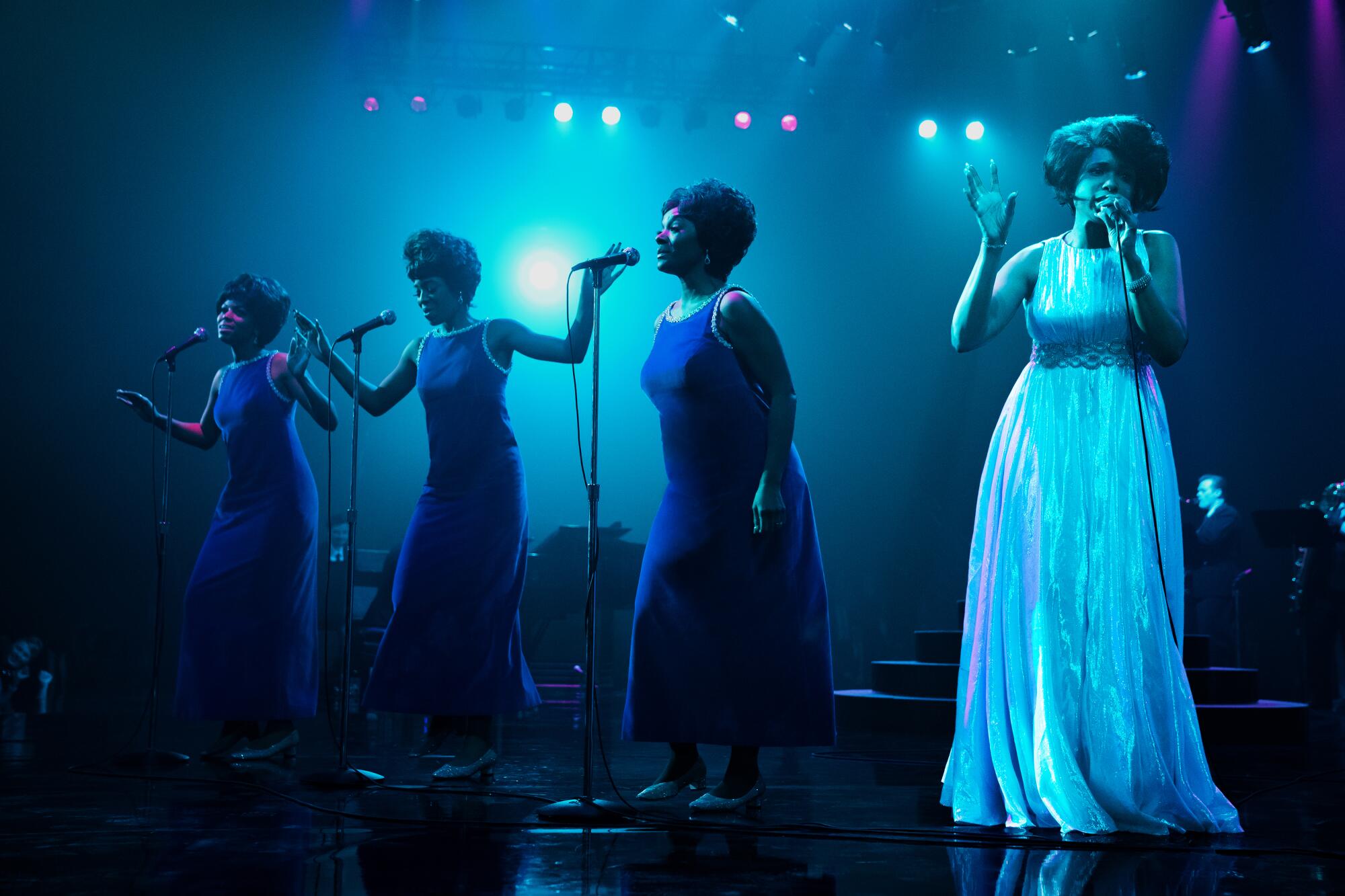
More to Read
From the Oscars to the Emmys.
Get the Envelope newsletter for exclusive awards season coverage, behind-the-scenes stories from the Envelope podcast and columnist Glenn Whippâs must-read analysis.
You may occasionally receive promotional content from the Los Angeles Times.










